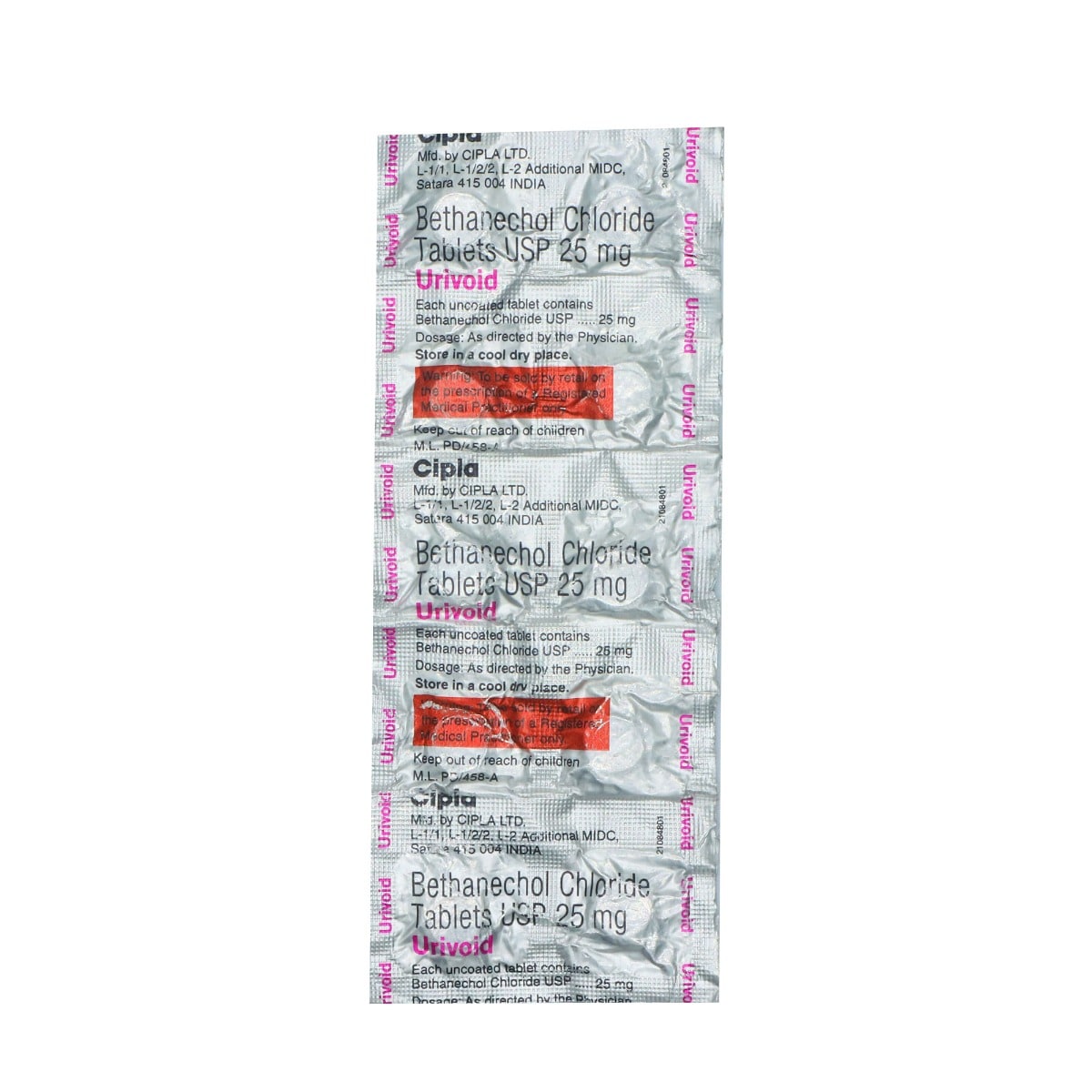Uritaz Tablet 10's
MRP ₹180
(Inclusive of all Taxes)
₹27.0 Cashback (15%)
Provide Delivery Location
Online payment accepted
 Prescription drug
Prescription drugWhats That
Composition :
Manufacturer/Marketer :
Consume Type :
Expires on or after :
Return Policy :
About Uritaz Tablet
Uritaz Tablet belongs to the class of medications called ‘Cholinergic agents’ used to treat urinary retention (holding urine in the bladder) due to surgery, childbirth, or bladder muscle problems.
Uritaz Tablet contains ‘bethanechol’ that helps treat the inability to urinate by acting on the bladder muscles. It contracts the detrusor muscle (a bladder muscle) pushing the urine out of the bladder, thus starting the urination process and emptying it.
Take Uritaz Tablet as prescribed. Your doctor will advise you on how often you take Uritaz Tablet based on your medical condition. You may experience some side effects such as abdominal discomfort, nausea, diarrhea, urgent desire to urinate, excessive salivation, flushing (reddening of the skin), and sweating. Consult a doctor if these side effects do not go away or worsen.
Do not take Uritaz Tablet if you are allergic to ‘bethanechol’ or any other contents. Before taking Uritaz Tablet , inform your doctor if you have undergone surgery, or previously been diagnosed with gastrointestinal (stomach and intestine) problems, urinary blockages, asthma, heart diseases, hyperthyroidism, seizures, Parkinson’s disease, or blood pressure problems (low or high). Also, tell your doctor if you are pregnant or breastfeeding. If Uritaz Tablet is prescribed, do not take alcohol while using Uritaz Tablet , as the condition may worsen due to increased risk of side effects. It would be best if you refrained from activities that require you to stay alert such as driving or operating heavy machinery as Uritaz Tablet may cause dizziness.
Uses of Uritaz Tablet
Directions for Use
Key Benefits
Uritaz Tablet is a cholinergic agent used to treat urinary retention. It works by acting on the detrusor muscle (bladder muscle) to push the urine out of the bladder. The detrusor muscle contracts strong enough to start the micturition (the process of urination), thus emptying the bladder.
Storage
Drug Warnings
Do not take Uritaz Tablet if you are allergic to any contents of it. Before taking Uritaz Tablet , inform your doctor if you had recent surgeries, stomach or intestinal ulcers, bladder obstruction, peritonitis (infection of the stomach lining), or inflammatory bowel disease (inflammation of the digestive tract). Use of Uritaz Tablet in the above illnesses may worsen the condition. Uritaz Tablet may cause atrial fibrillation (heart rhythm problems) in patients with hyperthyroidism (overactive thyroid). Uritaz Tablet may flare up the symptoms when used in patients with lung diseases such as asthma or chronic obstructive pulmonary disorder (COPD) as it can constrict the airways. Do not use Uritaz Tablet in patients with heart diseases, hypotension (low blood pressure), bradycardia (low heart rate), seizures, and Parkinson’s disease. Do not consume alcohol as it can increase dizziness. Inform your doctor if you are pregnant or breastfeeding. To avoid dizziness from this medicine, stand up slowly from a sitting or lying position.
Drug-Drug Interactions
Drug-Drug Interactions
Login/Sign Up
Taking Iohexol with Uritaz Tablet may increase the risk of seizures(fits).
How to manage the interaction:
Taking Uritaz Tablet with Iohexol can result in an interaction, but it can be taken if a doctor has advised it. However, if you notice symptoms like fits, consult a doctor immediately. Do not discontinue any medications without consulting a doctor.
Taking Iomeprol with Uritaz Tablet may increase the risk of seizures(fits).
How to manage the interaction:
Using Uritaz Tablet with Iomeprol can result in an interaction, but it can be taken if a doctor has advised it. However, if you notice symptoms like seizures, consult a doctor immediately. Do not discontinue any medications without consulting a doctor.
Taking Iopamidol with Uritaz Tablet may increase the risk of seizures(fits).
How to manage the interaction:
Using Uritaz Tablet with Iopamidol can result in an interaction, but it can be taken if a doctor has advised it. However, if you notice symptoms like seizures, consult a doctor immediately. Do not discontinue any medications without consulting a doctor.
Tramadol may cause seizures (fits), and taking it with Uritaz Tablet may increase that risk.
How to manage the interaction:
Using Uritaz Tablet with Tramadol together can result in an interaction, it can be taken if a doctor has advised it. Avoid performing tasks requiring mental focus, such as operating dangerous machinery or driving. Do not discontinue any medications without a doctor's advice.
Metrizamide may cause seizures (fits), and taking it with Uritaz Tablet may increase that risk.
How to manage the interaction:
Using Uritaz Tablet with Metrizamide can result in an interaction, but it can be taken if a doctor has advised it. However, if you notice symptoms like seizures(fits), consult a doctor immediately. Do not discontinue any medications without consulting a doctor.
Bupropion may rarely cause seizures and using it with Uritaz Tablet may increase that risk.
How to manage the interaction:
Although there is an interaction, bethanecol can be taken with bupropion if prescribed by the doctor. Avoid performing tasks requiring mental focus, such as operating dangerous machinery or driving. Do not discontinue any medications without a doctor's advice.
Drug-Food Interactions
Drug-Food Interactions
Login/Sign Up
Diet & Lifestyle Advise
- Drink more fluids in the morning and afternoon rather than at night.
- Limit alcohol and caffeine intake.
- Maintain a healthy weight. Shed excess weight if you are overweight or obese.
- Consume a healthy diet containing whole grains, fresh fruits and vegetables.
Side Effects of Uritaz Tablet
- Abdominal discomfort
- Nausea
- Diarrhoea
- Urgent desire to urinate
- Excessive salivation
- Flushing (reddening of the skin)
- Sweating
Habit Forming
Therapeutic Class
All Substitutes & Brand Comparisons
RX
Out of StockBethanevac 25 Tablet 10's
Prevego Healthcare & Research Pvt Ltd
₹152.4
(₹13.72 per unit)
15% CHEAPERRX
Out of StockBetawic 25 Tablet
Jaiwik Biotech
₹158
(₹14.22 per unit)
12% CHEAPERRX
Out of StockFlowvoid 25mg Tablet
₹165
(₹14.85 per unit)
8% CHEAPER
Drug-Diseases Interactions
Drug-Diseases Interactions
Login/Sign Up
Patients with reactive airway disease that is uncontrolled should not use cholinergic agonists. Acetylcholine hydrolysis is inhibited by cholinergic agonists. Acetylcholine's heightened action causes bronchospasm, increased bronchial secretions, and bronchial constriction.
How to manage the interaction:
This medicine is contraindicated in patients with uncontrolled reactive airway disease as it may cause constriction of the bronchi, increased bronchial secretions, and bronchospasm.
In individuals with prominent bradycardia, hypotension, coronary artery disease, or conduction problems, the use of cholinergic agonists such as Uritaz Tablet and pilocarpine is contraindicated.
How to manage the interaction:
Uritaz Tablet is contraindicated in patients with bradycardia (slow heart rate), low/high blood pressure, coronary artery disease or conduction disorders.
Patients with peptic ulcers, mechanical GI obstruction, acute GI inflammatory diseases, or urinary obstruction should not use cholinergic agonists. Gastric contractions, GI motility, and acid secretion may all increase as a result of cholinergic activity. Urine reflux may happen in people who have urine retention if the sphincter does not open up after cholinergic stimulation contracts the bladder. If there is bacteriuria, the urine from the bladder might reflux and infect the kidneys and upper urinary tract.
How to manage the interaction:
It is contraindicated in patients with peptic ulcers, mechanical gastrointestinal obstruction, acute gastrointestinal inflammatory conditions, or urinary obstruction.
Cholinergic medications may not be recommended for patients with hyperthyroidism. Patients who received a cholinergic agonist for hyperthyroidism experienced atrial fibrillation.
How to manage the interaction:
It is contraindicated in patients with hyperthyroidism (overactive thyroid) as irregular, rapid heart rate has occurred in hyperthyroid patients administered with cholinergic agents.
In patients with parkinsonism, the use of cholinergic agonists may be contraindicated. Acetylcholinergic effects are produced when cholinergic agonists directly stimulate the parasympathetic nervous system. Parkinson's disease symptoms could worsen.
How to manage the interaction:
It is contraindicated in patients with parkinsonism as this medicine may exacerbate the symptoms of Parkinson's disease.
Patients with seizure disorders may not benefit from using cholinergic agonists. Convulsions have been associated with cholinomimetics.
How to manage the interaction:
This medicine is contraindicated in patients with seizure disorders as it has been associated with convulsions.
FAQs
Drug-Drug Interactions Checker List
- MECAMYLAMINE
- TRIMETHAPHAN
Disease/Condition Glossary
Urinary retention: Urinary retention is the inability to empty the bladder. It occurs due to obstruction in the urinary tract or the presence of weak bladder muscles due to surgery, childbirth, or any underlying conditions.

Have a query?
Alcohol
Safe if prescribed
Alcohol may increase the risk of side-effects. So, do not take alcohol while using Uritaz Tablet .
Pregnancy
Consult your doctor
Uritaz Tablet is a category C medicine. It should be used in pregnant women only if needed.
Breast Feeding
Consult your doctor
Uritaz Tablet should be used in breastfeeding mothers only if needed.
Driving
Safe if prescribed
Uritaz Tablet may cause dizziness. So, do not drive or operate heavy machinery while using Uritaz Tablet .
Liver
Consult your doctor
Uritaz Tablet should be used with caution in patients with liver diseases.
Kidney
Consult your doctor
Uritaz Tablet should be used with caution in patients with kidney diseases. Dose adjustments may be necessary.
Children
Safe if prescribed
Uritaz Tablet should not be given to children below 12 years of age unless prescribed by a doctor.









